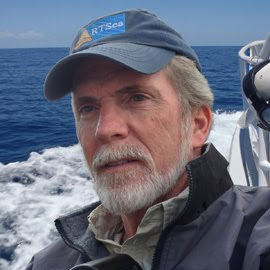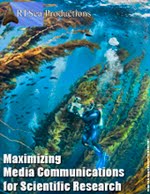 The annual meeting of the American Association for the Advancement of Science recently concluded in Chicago and one of the results of the meeting was a recognition of progress in several areas of ocean conservation, particularly regarding fishery management in developing areas and coral reef health in protected or managed areas.
The annual meeting of the American Association for the Advancement of Science recently concluded in Chicago and one of the results of the meeting was a recognition of progress in several areas of ocean conservation, particularly regarding fishery management in developing areas and coral reef health in protected or managed areas.Several areas were cited for improved sealife populations due to effective fisheries management including Papua New Guinea, Indonesia, and Vanuatu. These regions were able to develop management programs that involved local communities in determining and managing protected areas. One of the challenges being faced is in "mid-development" countries - countries that have a growing commercial need for fishing but do not have the infrastructure in place to effectively manage their ocean resources. Poorer nations do not have the commercial means to severely impact their local sealife populations whereas well-developed countries have the required infrastructure in place to implement and enforce management policies. In between are the transitional mid-development countries that need both large bureaucratic and local community involvement - and there are places that have done that successfully.
"One of the things that we’re seeing that is giving me some signs of hope is that in many places throughout the Western Indian Ocean, there’s a real trend toward co-management. We’re seeing a very big devolution of power of managing of coastal resources from centralized governments toward communities," said Josh Cinner, social scientist from James Cook University. "There are some instances where you see examples of blending customary management and contemporary management. Where we do see this happening, we see great success—places like Vanuatu and the Solomon Islands, where there is considerably more fish inside of these community-managed areas."
 During the annual meeting, it was also noted that healthy reef marine ecosystems have been shown to better withstand changes in their environment (temperature change, coral bleaching, etc.) - much like a healthy individual's ability to better ward off diseases due to good health that builds a strong immune system. The Pacific's Northern Line Islands were cited as an example and broader success is hoped for as these islands are within the larger U.S. National Marine Monument recently established.
During the annual meeting, it was also noted that healthy reef marine ecosystems have been shown to better withstand changes in their environment (temperature change, coral bleaching, etc.) - much like a healthy individual's ability to better ward off diseases due to good health that builds a strong immune system. The Pacific's Northern Line Islands were cited as an example and broader success is hoped for as these islands are within the larger U.S. National Marine Monument recently established.
















2 comments:
Interesting- much of the research I've seen recently has shown that organisms like coral and the plankton larval stage of fish are LESS resistant to temperature change than previously though, not more.
Certainly not everything in ocean conservation is doing well- sharks are doing worse than ever.
The AAAS's assessment was based on a macro view (overall reef health, fish counts, biodiversity)and meant to highlight the benefits of fisheries/marine management (ie: Northern Line Islands, MPAs). Of course there are micro ecosystem issues that can't be ignored and which could overpower and negatively impact any marine ecosystem, no matter how healthy.
No one at the AAAS was implying that all is well in the oceans. However, it is important to cite advancements as a source of encouragement - proof that our efforts can have a positive effect and we should not hesitate to do more. A continuous stream of bad news can overwhelm and paralyze those who we are trying to motivate.
Post a Comment